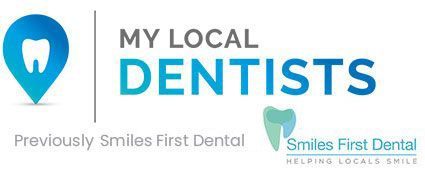
You are enjoying a quiet night at home when suddenly, you feel a throbbing sensation in your tooth or gum. You hope the pain will disappear, and it does for a little while, but it only comes back stronger. You take some ibuprofen, but it doesn’t help. Sounds familiar? If you’ve ever experienced throbbing tooth pain that comes and goes, you know how frustrating it can be. But what could be causing it? Let’s take a look.
What is throbbing tooth pain?
Teeth pain is something no one wants to experience. It feels like an intense, pulsating ache that can start in one or multiple teeth and radiates throughout the mouth. For throbbing tooth pain to be classified as an ache, it should remain constant, even with over-the-counter medications. There may also be a sharp throb when pressure is applied to the tooth – as if someone had just gently pinched it. If you find yourself experiencing throbbing tooth pain for longer than expected, contact your dentist for help finding relief.
Symptoms associated with throbbing tooth pain
- Sharp, aching pain when chewing or biting down on foods
- Chronic dull ache surrounding the affected tooth
- Tenderness and sensitivity to hot and cold temperatures
- Swelling in gums near the painful area
- Pain that radiates from the affected area to other areas
Possible Causes of Throbbing Tooth Pain
Tooth Decay and Cavities
Decay is one of the common causes of tooth pain. When food debris and bacteria mix with saliva in your mouth, they form plaque. As plaque builds up on the surface of your teeth over time, it leads to decay, which can cause sensitivity, soreness, and throbbing pain in the affected area. That needs attention as soon as possible, so contact your dentist for emergency treatment.
Infection or Abscess
Advanced gum and periodontal disease can lead to toothache pain, ranging from mild to severe. Unfortunately, tooth pain due to infection or abscess is a common form of toothache, and if left untreated, it can seriously damage your oral health. If your toothache is accompanied by swelling around the tooth or gum line, it may be a sign of a dental abscess. In this case, contacting your dentist immediately is important for further assessment and the appropriate treatment. With effective care, you can restore your smile to good health.
Sensitive teeth
 A sensitive tooth can be the reason behind a throbbing toothache. Eating hot or cold foods can be difficult if you have sensitive teeth. When a sensitive tooth is left untreated, the pain can become more severe, to the point of being unbearable. This sharp tooth pain can come in waves, almost like a pounding sensation in your mouth, making daily activities like brushing your teeth or speaking very uncomfortable.
A sensitive tooth can be the reason behind a throbbing toothache. Eating hot or cold foods can be difficult if you have sensitive teeth. When a sensitive tooth is left untreated, the pain can become more severe, to the point of being unbearable. This sharp tooth pain can come in waves, almost like a pounding sensation in your mouth, making daily activities like brushing your teeth or speaking very uncomfortable.
Being proactive about any signs of sensitive teeth by brushing with toothpaste specifically for sensitive teeth and visiting your dentist more often is the best way to prevent the dreaded throbbing toothache.
Teeth grinding
Teeth grinding, also called bruxism, occurs when patients are unaware that they grind or clench their teeth during both the day and night. Because of this repeated clenching, patients may experience a dull ache in the jaw and sharp pain in the teeth, which often intensifies at night due to reduced blood flow to the area. That is why patients grinding their teeth sometimes wake up with a sore jaw or sensitive teeth. Fortunately, treating this usually involves simply wearing mouthguards during sleep, leading to reduced occurrences of throbbing tooth pain that comes and goes.
Impacted wisdom teeth
When wisdom teeth become impacted, meaning they cannot emerge all the way through the gum line, they can cause dental pulp in the tooth to become inflamed. That is referred to as pulpitis and causes sharp tooth pain. It is possible for this inflammation to even lead to a broken tooth or damage to the teeth nearby if not treated in time. That’s why it is important for patients with impacted wisdom teeth to visit the dentist to begin treatment before any more serious dental complications arise.
Sinusitis
Most people would never think that their sinuses could be the source of mysterious tooth pain, but referred pain from a sinus infection may be causing this discomfort or facial swelling even in the absence of any dental problem. In some cases, inflammation in the area of a patient’s sinuses is advancing to the nerves, teeth, and jaws producing a throbbing sensation on and off.
 Temporomandibular joint (TMJ) disorder
Temporomandibular joint (TMJ) disorder
Disorder of your temporomandibular joint (TMJ) – where your jawbone connects to the skull – can cause a debilitating throbbing toothache.
Patients must be aware of any tightness or clicking sounds in the jaw area, which might indicate TMJ disorder.
In some cases, this even causes headaches and earaches.
Treatment of this disorder is often done over time with the help of a physical therapist to reduce the pain, so it is important to diagnose and start treatment early.
Trauma or Injury
If you’ve recently suffered a blow to your mouth, it could be causing you throbbing pain in your teeth. Trauma and injury-related issues can range from minor cracks in the enamel to a cracked tooth or even a broken tooth, depending on how severe the impact was when you hit your head or face. If you suspect this may be causing your discomfort, then visit your dentist immediately for evaluation and treatment if necessary!
Treatment for Tooth Pain Emergency
Consider professional consultation with a dentist who can diagnose and treat the cause accordingly. Treatments for throbbing teeth pain may include:
Root canal treatment
A dentist will conduct root canal therapy to treat an infected tooth. In this process, the diseased pulp from within the tooth is extracted and cleaned with antiseptic solutions before being filled and sealed off to prevent further infection. A root canal usually successfully treats an infected tooth while preserving the tooth structure.
Extraction
If a root canal doesn’t work or isn’t an option, the next step would be to have the tooth extracted (pulled). Afterwards, you may consider a dental implant placed to fill the empty space where your tooth was.
Antibiotics
If you are diagnosed with an infection or gum disease, you may be prescribed antibiotics to help clear it up.
 However, antibiotics will not fix a cracked or chipped tooth, so you will still need to see a dentist for treatment.
However, antibiotics will not fix a cracked or chipped tooth, so you will still need to see a dentist for treatment.
The good news is that treatment exists, and it can provide both short-term and long-term solutions. For patients wishing to take a proactive approach, an examination by a dentist followed by the appropriate care can help reduce existing pain and prevent potential problems in the future. Also, treatments such as pain relief medications and home remedies help eliminate the discomfort briefly. But taking steps to treat root causes will definitely allow patients to enjoy better oral health.
Contact us
At My Local Dentists Northmead (previously My Local Dentists Northmead), patients trust our expert team to relieve their dental pain. Whether it’s a mild discomfort in the teeth or a more serious throbbing tooth pain that comes and goes, patients can trust that our friendly dentists will treat it with the utmost professionalism and compassion they deserve in one of our five dental clinics in Sydney.
Please call us at (02) 9630 9996 to schedule your consultation.
Note: Any surgical or invasive procedure carries risks.
References
Throbbing tooth pain: Causes, symptoms, and treatment | Medical News Today
https://www.medicalnewstoday.com/articles/throbbing-tooth-pain
Throbbing Tooth Pain: Causes and Treatments | Healthline
https://www.healthline.com/health/dental-and-oral-health/throbbing-tooth-pain#other-symptoms
Toothache – NHS
https://www.nhs.uk/conditions/toothache/

